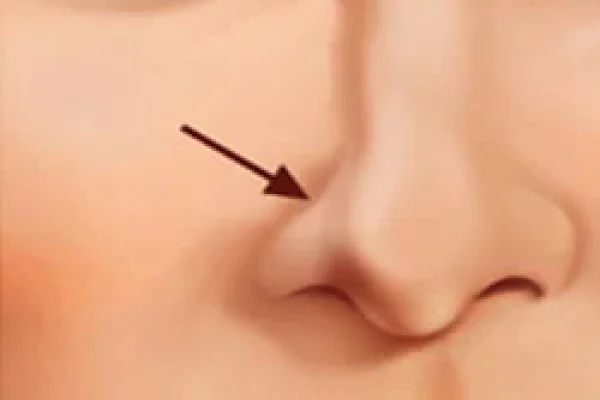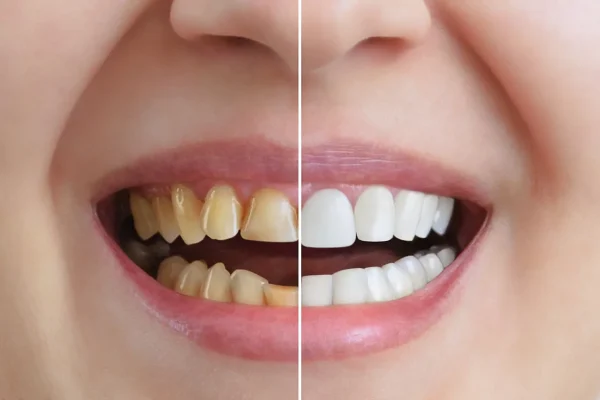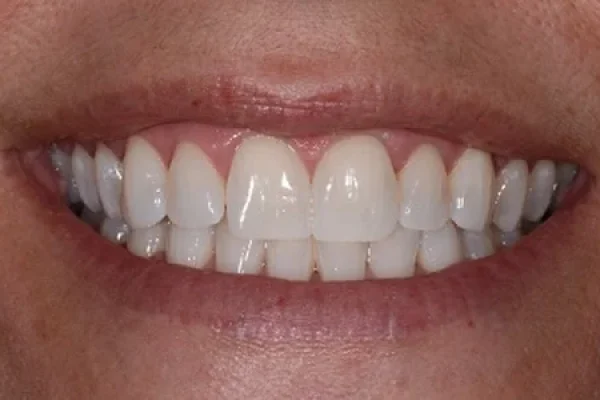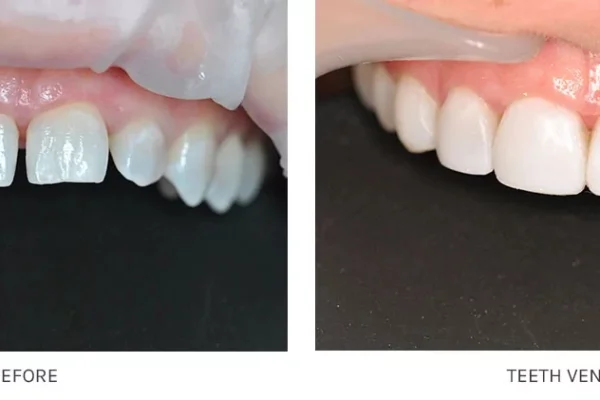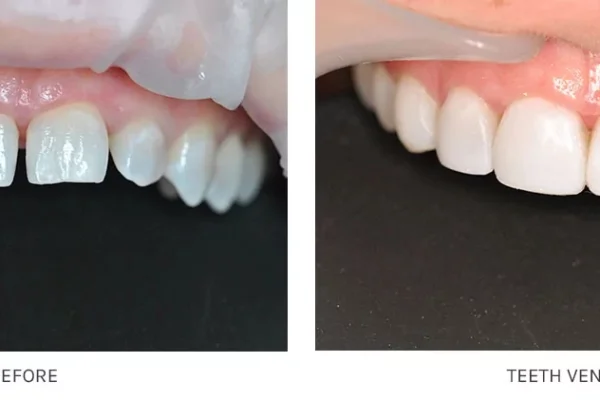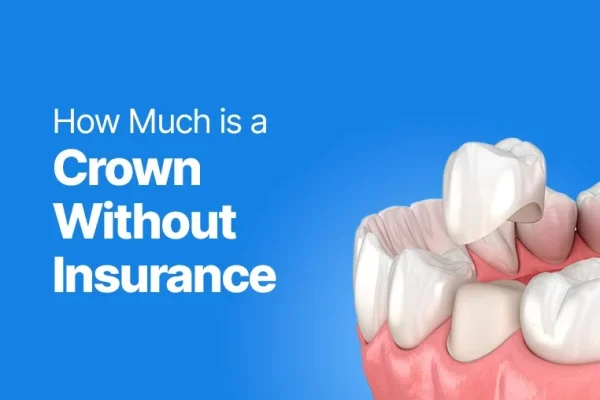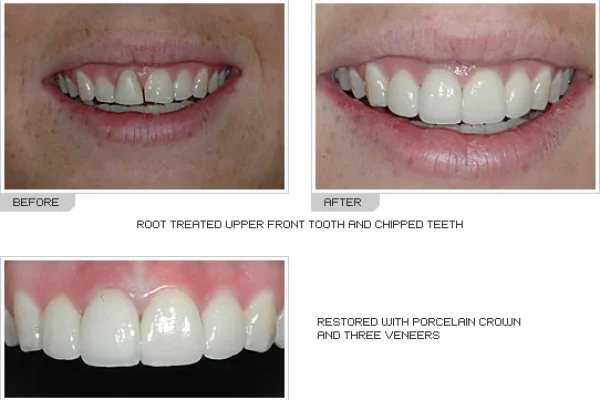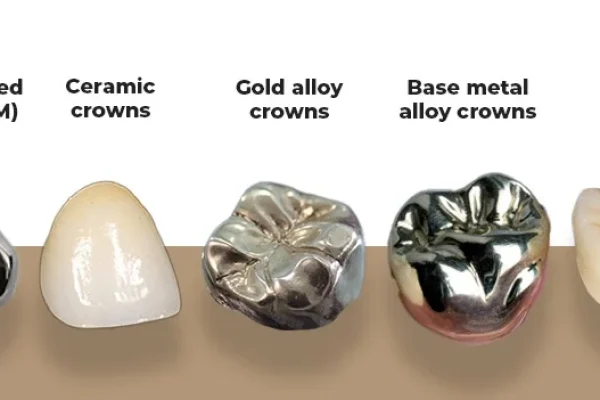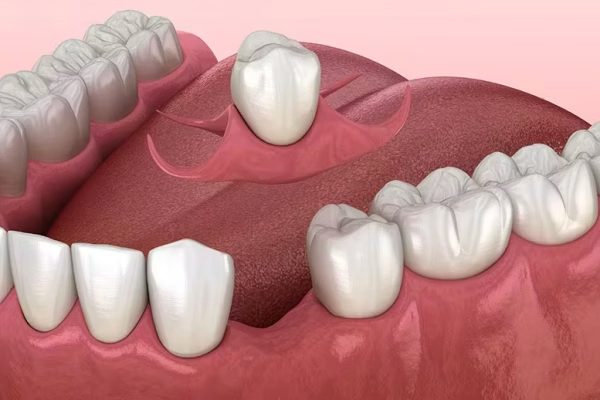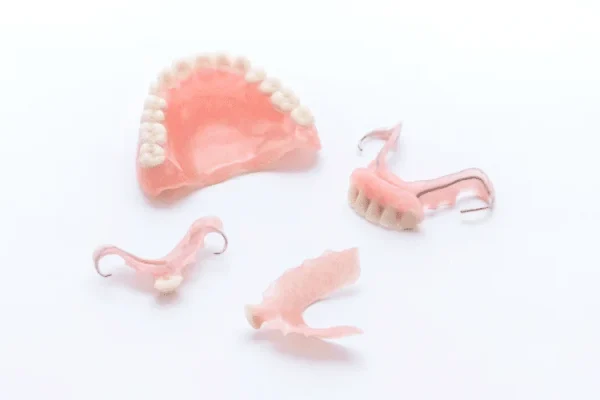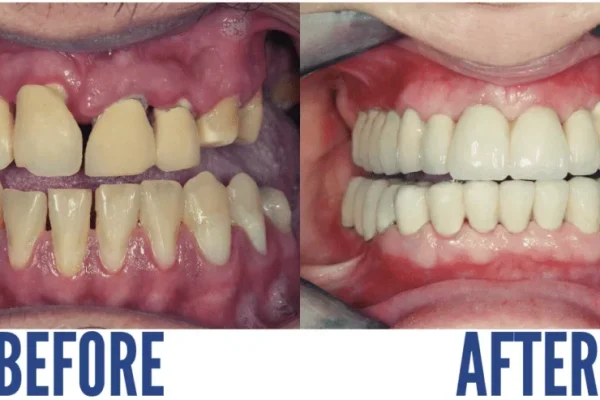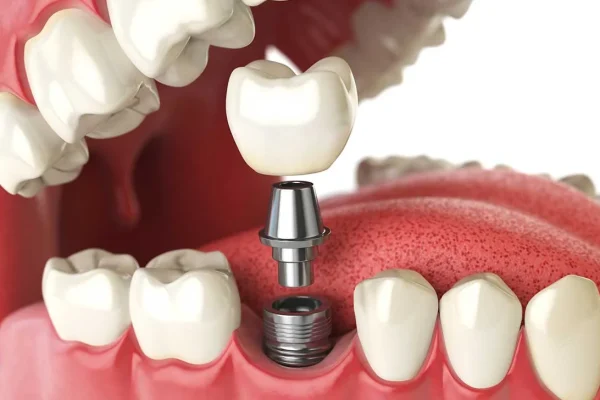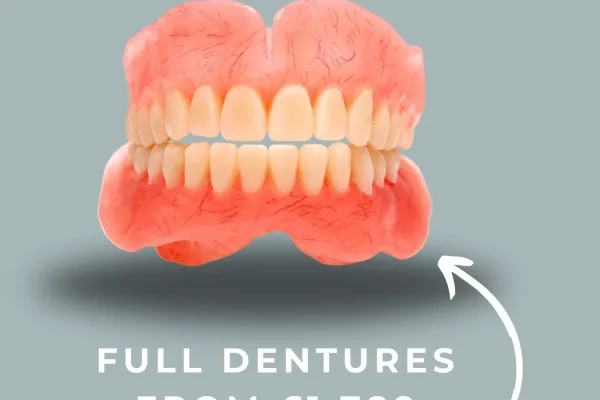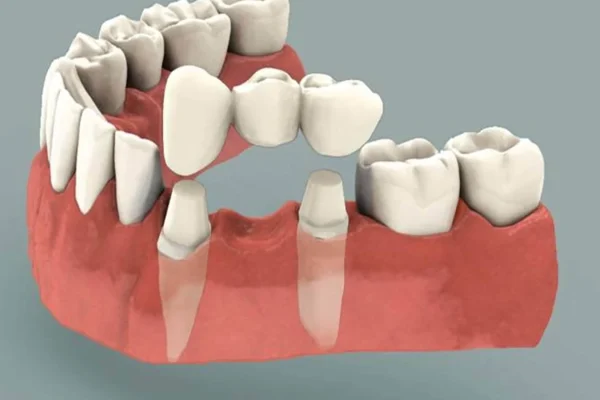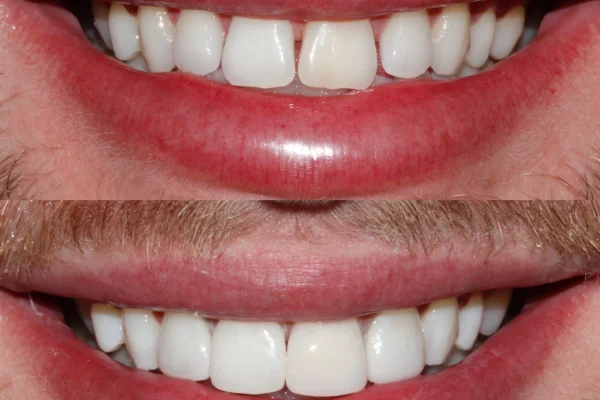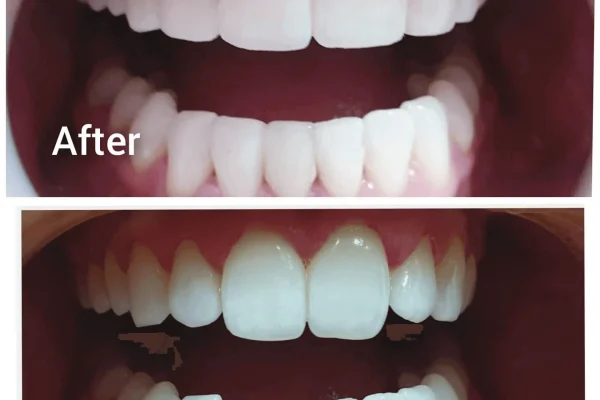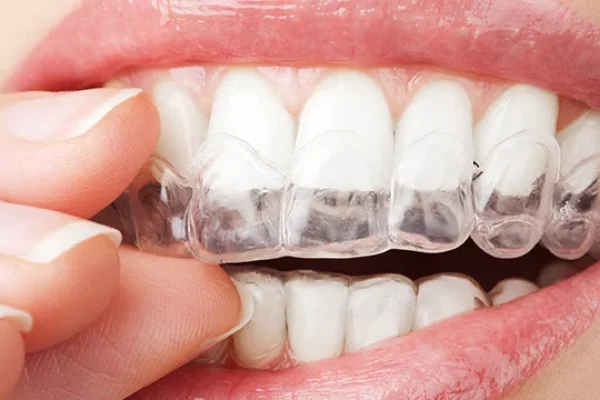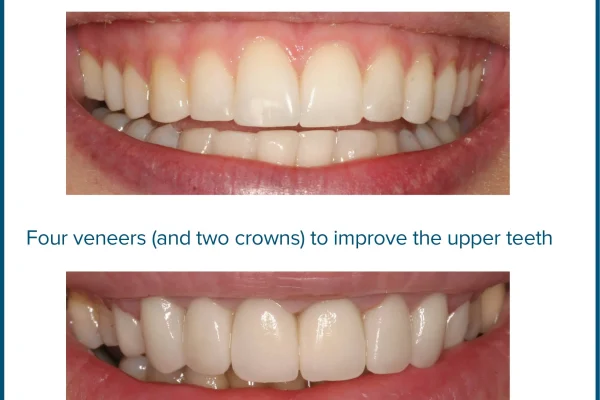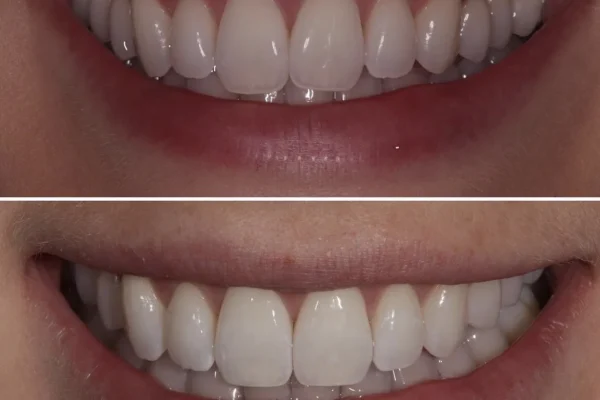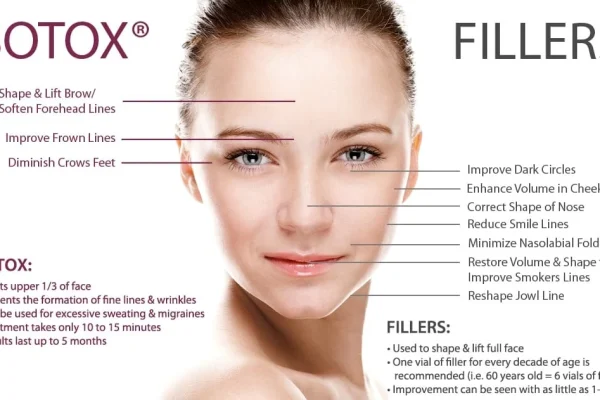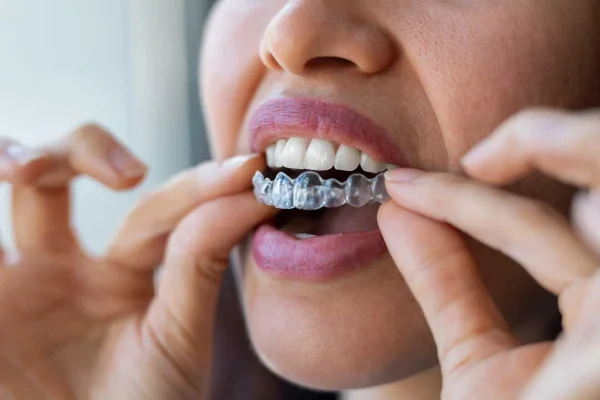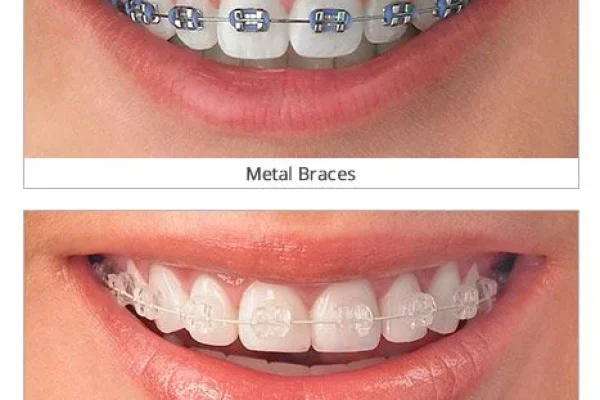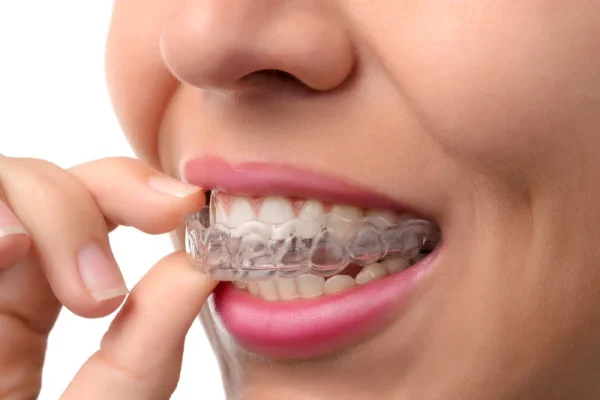
Navigating the world of cosmetic dentistry can often feel like trying to read a map in a foreign language, especially when it comes to the all-important question of cost. The term “bonding teeth cost” echoes in the minds of many aspiring to a brighter, more harmonious smile, yet the answer is rarely a simple figure plucked from the air. Dental bonding, a marvel of modern cosmetic dentistry, offers a versatile and often more accessible route to correcting a plethora of minor imperfections – from pesky chips and stubborn stains to unsightly gaps and subtle misalignments. It involves the skilled application of a tooth-coloured composite resin, meticulously sculpted and polished to blend seamlessly with your natural teeth. Think of your dentist as a sculptor, and the resin as their clay; the artistry involved is significant. This guide aims to illuminate the financial contours of this popular procedure, breaking down the “composite bonding cost” into understandable segments. We’ll explore the general “dental bonding price,” delve into the specifics of “tooth bonding cost,” and unpack the myriad factors that collectively determine the final invoice. It’s about empowering you with knowledge, so you can approach consultations with confidence and make informed decisions. Whether you’re considering a minor touch-up or a more comprehensive smile enhancement, understanding the investment is paramount. We’ll cut through the complexities, offering clarity on average price ranges, the variables that can make your quote swing high or low, and what you should anticipate as you embark on this transformative journey. The goal isn’t just a prettier smile, but a smarter patient, equipped to discuss options and financials with their chosen dental professional.
Key Takeaways
- UK bonding cost: Typically £200-£600 per tooth, varying by complexity and location.
- Cost factors: Dentist’s skill, number of teeth, case complexity, materials, and clinic location significantly influence the price.
- Payment options: Many clinics offer finance plans, including 0% interest options, to help spread the cost.
- International costs: Countries like Turkey may offer cheaper bonding, but thorough research and consideration of all factors are crucial.
- Bonding vs. Veneers: Composite bonding is generally more affordable upfront compared to porcelain veneers.
What Is the Typical Bonding Teeth Cost and What Key Factors Influence It?
When you first dip your toes into the waters of cosmetic dentistry, the question “What is the typical bonding teeth cost?” is likely at the forefront of your mind. It’s a natural starting point, but the reality is that “typical” can be a rather elastic concept in this field. Dental bonding, or composite bonding as it’s frequently known, is less like buying an off-the-shelf product and more akin to commissioning a piece of bespoke art. The procedure itself involves the meticulous application of a tooth-coloured resin material directly onto the tooth’s surface. This resin is then expertly shaped, hardened with a special light, and finally polished to achieve a natural, aesthetically pleasing look. It’s a fantastic solution for repairing chips, closing gaps, improving tooth shape, or masking discolouration. However, because each patient’s needs and dental landscape are unique, the “dental bonding price” or “tooth bonding cost” will reflect that individuality.
Think of it this way: a minor chip on a single front tooth requires a different level of intervention, material, and chair time than, say, reshaping and colour-matching six front teeth to create a harmonious smile line. The “composite bonding cost” isn’t just about the raw materials; it’s a complex calculation. This section will begin to unravel that calculation, highlighting that while we can discuss averages, your personal quote will emerge from a detailed consultation where a dental professional assesses your specific situation. We’ll touch upon the key variables – such as the extent of the work needed and the number of teeth involved – that start to paint the financial picture. Understanding these foundational elements is crucial before we delve into more specific pricing scenarios, ensuring you grasp why the cost can fluctuate significantly from one individual to another, even within the same clinic. It’s about appreciating the personalised nature of the treatment and why a standardised price list often doesn’t tell the whole story. The artistry and precision required mean that the “cosmetic bonding cost” truly reflects the skill and time dedicated to your smile.
How Much Is Tooth Bonding on Average?
So, let’s get down to brass tacks, or perhaps, polished resin. When patients ask, “How much is tooth bonding on average?”, they’re usually looking for a ballpark figure to start their budgeting and decision-making process. Generally speaking, for a single tooth, the cost of composite bonding can range quite broadly, often starting from around £200 and potentially going up to £600 or more per tooth in many private UK practices. This initial estimate is just that – an estimate. It’s crucial to understand that this isn’t a fixed menu price like you’d find at a café. The “tooth bonding cost” is highly dependent on the factors we’ll explore in more detail shortly. However, providing this general range helps set a foundational expectation. It acknowledges that bonding is an investment, but often a more accessible one compared to alternatives like porcelain veneers, especially for more minor corrections.
This average figure typically covers the cost of the composite resin material itself, the dentist’s time and expertise in applying, sculpting, and polishing the resin, and the use of specialised equipment like curing lights. It’s a snapshot that captures a wide array of simpler bonding procedures. For instance, a very small, straightforward chip repair might fall at the lower end of this spectrum, while a more complex reshaping of a tooth or a larger surface area restoration will naturally command a higher fee. This average helps you gauge whether bonding is within your considered budget before you even step into a clinic for a consultation. It prevents “sticker shock” and allows for a more informed initial conversation with your dental provider. Remember, the goal of this average is to provide a preliminary understanding; the true cost for your specific needs will only be determined after a thorough examination and discussion of your aesthetic goals with a qualified cosmetic dentist. The variability is inherent in the bespoke nature of the treatment – no two smiles, and therefore no two bonding procedures, are exactly alike.
What Are the Main Factors Determining the Composite Teeth Cost?
Understanding the “main factors determining the composite teeth cost” is like getting the key to unlock the pricing puzzle. It’s not arbitrary; several concrete elements contribute to the final figure on your treatment plan. Firstly, the complexity of your case is paramount. Are we talking about a tiny, almost invisible chip on a single tooth, or are we looking at more extensive work like closing multiple gaps, significantly altering the shape of several teeth, or masking deep intrinsic stains? A simple repair is quicker and uses less material than a comprehensive smile makeover involving intricate sculpting and layering of different shades of resin to achieve a natural, vital appearance. The more complex the aesthetic challenge, the more time, skill, and material are required, directly impacting the “composite teeth cost.”
Secondly, the number of teeth being treated is a straightforward multiplier, at least initially. Treating six teeth will, of course, cost more than treating one. However, some clinics may offer a slightly reduced per-tooth rate if multiple teeth are bonded in the same session, due to efficiencies in setup and procedure time. Don’t assume a simple multiplication; always ask if package considerations apply for more extensive work. Thirdly, the dentist’s experience and reputation play a significant role. A highly experienced cosmetic dentist, perhaps one who specialises in aesthetic procedures and has a portfolio of stunning transformations, will likely command higher fees. You’re paying for their advanced training, artistic eye, and proven track record. Think of it as commissioning an established artist versus a promising newcomer. Their geographical location also ties into this; a clinic in a high-rent district in a major city will invariably have higher overheads than a practice in a smaller town, and this is often reflected in the “cosmetic bonding cost.”
Furthermore, the quality and type of materials used can influence the price. While composite resin is the standard, there are different brands and formulations, some offering enhanced durability, stain resistance, or a wider range of shades for better aesthetic matching. Higher-quality materials may come at a premium. Lastly, consider if any additional procedures are necessary to achieve the optimal result. For example, your dentist might recommend a professional cleaning and polishing before bonding, or perhaps teeth whitening if you wish to lighten your natural teeth so the bonding can be matched to a brighter shade. These ancillary treatments will add to the overall investment. Understanding these core components empowers you to have a more detailed conversation with your dentist about your specific “dental bonding price” and the value you’re receiving.
How Much Does Composite Bonding Cost Per Tooth?
When you start researching “composite bonding cost,” you’ll quickly find that pricing “per tooth” is an exceedingly common model in the world of cosmetic dentistry. This isn’t an arbitrary choice by dental professionals; rather, it reflects the highly individualised nature of the treatment. Each tooth presents its own unique set of challenges and requirements. One tooth might need a tiny corner rebuilt, while its neighbour might require more extensive reshaping or surface coverage to mask discolouration. Quoting a “composite bonding cost per tooth” allows dentists to provide a transparent and tailored estimate that accurately reflects the specific work needed for each individual element of your smile. This approach ensures that you’re only paying for the treatment you actually receive on a tooth-by-tooth basis, rather than a vague package price that might not suit your precise needs.
This per-tooth pricing structure also facilitates a clear discussion about your treatment plan. You and your dentist can go over which teeth would benefit most from bonding, prioritise treatment if necessary, and understand the cost implications for each step. It allows for flexibility; you might choose to bond a few key teeth now and consider others later, depending on your budget and aesthetic goals. Furthermore, sometimes a distinction is made for very minor procedures, such as “composite edge bonding cost.” Edge bonding typically refers to the repair or subtle enhancement of just the biting edge of a tooth, often to correct small chips or wear. Because this usually involves less material and time than full-surface bonding or significant reshaping, some clinics might offer a slightly different, often lower, price point for this specific, less invasive application. Always clarify with your dentist if the per-tooth quote varies based on the extent of work on that individual tooth or if “edge bonding” is priced separately. This nuanced approach ensures fairness and clarity in understanding your investment in your smile.
What Is the Typical Price Range for Composite Bonding on a Single Tooth?
Drilling down into the specifics, the “typical price range for composite bonding on a single tooth” is a figure many prospective patients are keen to establish early on. As we’ve touched upon, in the UK, you can generally expect this to fall somewhere between £200 and £600. However, it’s worth reiterating that this is an illustrative range. For a very minor correction, like smoothing a tiny chip on an otherwise healthy tooth, the cost might sit comfortably at the lower end of this spectrum. This kind of procedure is relatively quick, requires less material, and demands less intricate artistry from the dentist. It’s a fantastic, cost-effective way to restore a tooth’s integrity and appearance with minimal fuss.
Conversely, if a single tooth requires more substantial work – perhaps it’s significantly discoloured and needs full veneering with composite resin, or it’s a peg lateral incisor that needs to be built up to a normal size and shape, or there’s a fracture that compromises a larger portion of the tooth structure – then the cost will naturally gravitate towards the higher end of that £200-£600 range, and in some complex cases or with highly specialised dentists, it could even exceed this. Such procedures demand more of the dentist’s time, a greater volume of high-quality composite material, and a higher degree of artistic skill to sculpt the resin for a seamless, natural-looking result that matches the surrounding teeth in colour, translucency, and texture. The location of the tooth can also play a part; front teeth, which are crucial for aesthetics, often require more meticulous attention to detail in terms of shade matching and shaping than, say, a small chip on a less visible back tooth (though bonding is less commonly used on molars for extensive restorations due to biting forces). Always remember, this per-tooth cost isn’t just for the material; it encompasses the dentist’s expertise, the clinic’s overheads, and the time dedicated to perfecting that single element of your smile. A detailed consultation will provide a precise quote tailored to your unique tooth.
What Is the Dental Bonding Cost in the UK?
For those of us residing in the sceptred isle, the specific “dental bonding cost in the UK” is, understandably, a primary concern. The United Kingdom’s dental market has its own unique characteristics, with a blend of NHS and private dental care, though cosmetic procedures like composite bonding predominantly fall under the private sector. This means that pricing is determined by individual clinics rather than being standardised by a central health authority. As a result, the “teeth bonding price UK” can exhibit considerable variation across the country. You’ll find that costs in bustling metropolitan areas, particularly London, often sit at a premium compared to those in smaller towns or more rural regions. This disparity is generally attributed to higher operational costs, including rent for premises and staff wages, in major cities.
The demand for cosmetic dentistry also plays a role; areas with a higher concentration of individuals seeking aesthetic enhancements may see more competitive, or sometimes more premium, pricing. The general range provided earlier – typically £200 to £600 per tooth – is certainly applicable within the UK context. However, it’s crucial for UK residents to shop around, not just for price, but for quality, experience, and a dentist with whom they feel comfortable. Many UK dental practices are very transparent about their fees and will often provide a guide price list on their websites or upon request. The rise in popularity of composite bonding in the UK, driven by its conservative nature (often requiring little to no removal of natural tooth structure) and its aesthetic outcomes, means that many dentists are now highly skilled in this procedure. This increased availability and expertise are positive for patients, but it also underscores the importance of doing your due diligence to find a practitioner whose work aligns with your expectations and whose “dental bonding cost UK” fits your budget, without compromising on the quality of care.
How Much Can I Expect to Pay for Teeth Bonding UK Wide?
When considering “teeth bonding UK wide,” the financial landscape, while variable, does present some discernible patterns. As a general guide, across the United Kingdom, patients can typically expect the “composite bonding cost uk” to range from approximately £250 to £600 per tooth. This is a broad estimate, of course, and you might find clinics offering services slightly below or significantly above this bracket, particularly if they are catering to a niche market or possess exceptionally renowned cosmetic dentists. For instance, a dental practice in a less urban area of Scotland or Northern England might offer rates towards the lower end of this spectrum, perhaps starting around £250-£400 per tooth for standard procedures. In contrast, clinics in more affluent areas of the South East, or those with celebrity cosmetic dentists, might see their per-tooth “teeth bonding cost uk” begin at £400 and climb upwards, especially if advanced techniques or premium materials are employed.
It’s important to factor in that this price usually encompasses the entire procedure for that single tooth: the initial preparation (which is minimal for bonding), the application and meticulous sculpting of the composite resin, the curing process with a specialised light, and the final shaping and polishing to achieve a lustrous, natural finish. Some clinics might also include a follow-up review appointment within this cost, though this should always be clarified. When comparing the “dental bonding cost uk” with potential international averages, the UK often sits in a mid-to-higher price range, reflecting the high standards of regulation, material quality, and professional training prevalent in the country. While the allure of cheaper treatment abroad exists (which we’ll touch on later), many opt for UK-based treatment due to the convenience, robust regulatory framework, and ease of access for any necessary follow-up care or adjustments. The key is to obtain detailed, itemised quotes from a few shortlisted UK clinics to get a realistic understanding of the investment required for your specific smile goals.
Is Composite Bonding Cost in London Typically Higher?
Ah, London! The vibrant, sprawling metropolis where everything from a pint of beer to a parking space seems to come with a premium price tag. It should come as no surprise, then, that the “composite bonding cost in London” often follows this trend and is typically higher than in many other parts of the UK. If you’re seeking treatment in the capital, you might find that the average price per tooth for composite bonding could range from approximately £350 to £800, and in some very exclusive Harley Street or Knightsbridge clinics with renowned cosmetic specialists, it could even surpass this. This “London premium” isn’t just an arbitrary inflation; there are tangible reasons behind it. Firstly, the operational overheads for dental practices in London are significantly higher. Commercial rent, business rates, and staff salaries all contribute to a steeper baseline cost for clinics to simply open their doors.
Secondly, London is a global hub, attracting highly skilled and often internationally recognised dental professionals. These dentists may have undergone extensive postgraduate training in cosmetic dentistry, invested heavily in cutting-edge technology, and built up a reputation for delivering exceptional aesthetic results. Their expertise and the demand for their services naturally command higher fees. Furthermore, the concentration of wealth and a strong demand for cosmetic procedures in London mean that clinics can often charge more, knowing there’s a market willing to pay for premium service and results. However, it’s not all doom and gloom for Londoners seeking bonding. The sheer number of dental practices in the city also means there’s competition, and some clinics may offer more accessible pricing or introductory offers, particularly newer practices looking to build their client base. Nevertheless, as a general rule, you should budget for a higher “composite bonding cost in London” compared to, say, Manchester, Birmingham, or Cardiff. The key, as always, is thorough research and obtaining multiple quotes to find a balance of quality, expertise, and cost that suits your needs within the capital’s dynamic dental market.
How Much Is a Full Set of Composite Bonding or Treatment for Multiple Teeth?
Moving beyond single-tooth fixes, many individuals consider composite bonding for a more comprehensive smile transformation, often asking, “How much is a full set of composite bonding?” or what the cost might be for treating multiple teeth, typically those visible when they smile – often referred to as the “social six” (the front six upper teeth) or even more. When you’re looking at enhancing several teeth simultaneously, the cost structure can sometimes differ slightly from a simple multiplication of the single-tooth price. While the fundamental “composite bonding price” per tooth still applies, some dental clinics may offer a more favourable overall package or a slightly reduced rate per tooth when a larger number of teeth are being treated in one go. This is because there are certain efficiencies for the dentist and the clinic when performing multiple bondings in a single extended appointment – for example, setup time, material preparation, and even some aspects of the shade-matching and sculpting process can be streamlined.
Addressing the common question, “How much is a full set of composite bonding?” requires a bit of definition. A “full set” doesn’t usually mean every single tooth in your mouth. More commonly, it refers to treating, say, 8, 10, or even 12 of the most visible upper and/or lower teeth to create a harmonious and aesthetically pleasing smile line. The investment for such extensive work will naturally be more significant, running into several thousands of pounds. However, the transformative effect of treating multiple teeth can be dramatic, addressing widespread discolouration, multiple chips or gaps, or creating a more uniform and balanced appearance. Dentists experienced in smile makeovers will conduct a thorough consultation, discussing your aesthetic goals, assessing which teeth would benefit most, and then providing a detailed treatment plan and an overall “composite bonding costs” estimate. This comprehensive approach ensures you understand the scope of the treatment and the total investment involved in achieving your desired smile.
What Is the Estimated Composite Bonding Price for 4 to 6 Teeth?
For many individuals looking to enhance their smile with composite bonding, the focus often falls on a specific group of teeth – typically the front four to six upper teeth, often dubbed the “social six” or the “aesthetic zone,” as these are the most visible when you smile and speak. So, what is the estimated “composite bonding price” when you’re considering treating this common number of teeth? Based on the typical UK per-tooth range of £250 to £600, if you were to treat four teeth, you might be looking at an investment somewhere between £1,000 and £2,400. If you extend this to six teeth, the range could be approximately £1,500 to £3,600. These figures are, of course, derived by multiplying the per-tooth cost, but it’s in this territory that some clinics might begin to offer slightly more advantageous pricing. For example, a clinic might have a set fee for “4 teeth composite bonding” or “6 teeth composite bonding” that offers a modest saving compared to the straight sum of individual tooth costs.
Competitor research and anecdotal evidence often suggest figures in this region. For instance, you might see examples like “Composite bonding in UK for 4 teeth can range between £900 & £1,195” from some sources, or “6 teeth composite bonding is £1,495-£1,695 typically” from others, though these often represent more entry-level or promotional pricing. The actual quote you receive will still heavily depend on the complexity of the work required for each of those four or six teeth, the materials chosen, the dentist’s expertise, and the clinic’s location. Treating this number of teeth is a significant step towards a smile makeover, capable of addressing issues like multiple small gaps, generalised mild discolouration that hasn’t responded to whitening, or creating more symmetry and harmony in the smile line. It’s a popular option because it can deliver a substantial aesthetic improvement without the more invasive preparation often required for porcelain veneers across multiple teeth. Always have a detailed consultation to get a precise quote for your specific “smile zone” enhancement.
What Could Be the Composite Bonding Cost for a Full Mouth?
When patients inquire about the “composite bonding cost for a full mouth,” it’s important to clarify what “full mouth” typically entails in a cosmetic dentistry context. Rarely does it mean treating all 28 to 32 teeth. Instead, “full mouth composite bonding” usually refers to treating a significant number of the most visible teeth, often 8 to 10 teeth on the upper arch and perhaps a similar number on the lower arch if they are prominent when smiling or speaking – so, potentially 16 to 20 teeth in total. This is a substantial undertaking, designed to deliver a complete smile transformation. Given the number of teeth involved, the overall investment will be considerable. If we use our UK average per-tooth cost of £250 to £600, treating 16 teeth could theoretically range from £4,000 to £9,600, and for 20 teeth, it could be £5,000 to £12,000. Some competitor examples cite figures like “Composite bonding costs £4,000-£4,500 typically for a full mouth (16 teeth),” which likely represents a more competitive or package-based pricing model.
Achieving a harmonious and aesthetically pleasing result across this many teeth requires a high level of skill, artistry, and meticulous planning from the cosmetic dentist. It’s not just about individual teeth anymore; it’s about creating an overall smile design that complements the patient’s facial features. The dentist will consider factors like tooth proportion, smile line, and overall facial aesthetics. Because of the extensive nature of the work, clinics are often more likely to offer a comprehensive package price for “full mouth” cases, which might represent a better value per tooth than if each were costed strictly individually. However, this is a significant cosmetic procedure, and the investment reflects the amount of clinical time, high-quality materials, and advanced skill required. Patients considering this level of treatment should engage in thorough consultations, review the dentist’s portfolio of similar cases, and ensure they have a clear understanding of the expected outcomes and the total “composite bonding costs” involved before committing to such a transformative journey.
How Does the Specific Dental Issue Affect the Composite Bonding Price?
The specific dental issue you’re looking to address with composite bonding is a critical determinant of the final “composite bonding price.” It’s not just about how many teeth are treated, but what is being done to those teeth. The nature and complexity of the dental problem directly influence the amount of time, skill, and material required from your dentist. Think of it like car repair: fixing a small scratch is vastly different in scope and cost from repairing significant bodywork damage, even if both are on the same panel. Similarly, applying a thin layer of composite to mask minor discolouration on a tooth is a less intricate task than, say, completely rebuilding a congenitally small (peg) lateral incisor to match its neighbours, or meticulously closing a prominent gap while ensuring the teeth still look proportionally correct and natural.
Different applications of composite bonding demand varying levels of artistry and technical precision. For instance, repairing a simple, straightforward chip might be at the lower end of the per-tooth cost spectrum. However, if the bonding is being used to significantly alter the shape or size of a tooth, or to cover extensive staining that requires careful layering of different opacities and shades of resin to mimic natural tooth structure, then the complexity increases, and so does the “cosmetic bonding cost.” The dentist needs to consider not only the aesthetics but also the functional aspects, ensuring the bonded tooth can withstand normal biting and chewing forces, especially if the bonding extends to the biting edge. Therefore, during your consultation, your dentist will thoroughly assess the specific issues you wish to correct – be it chips, gaps, stains, or misshapen teeth – and this assessment will form a core part of how they calculate your individual “composite bonding price.” Understanding this link between the problem and the price helps you appreciate the tailored nature of the solution.
What Is the Cost of Composite Bonding to Close Teeth Gaps?
Closing teeth gaps, medically known as diastema closure, is one of the most popular applications for composite bonding, and many patients specifically inquire about the “cost of composite bonding to close teeth gaps.” A gap between the front teeth, for instance, can be a source of self-consciousness for some, and bonding offers a relatively quick, minimally invasive, and cost-effective solution compared to orthodontic treatment, especially for smaller gaps. The cost for this procedure can vary significantly based on several factors. Firstly, the size of the gap itself matters. A very small gap might require minimal addition of composite resin to one or both adjacent teeth, making it a relatively straightforward procedure that would likely fall within the lower to mid-range of the per-tooth “composite bonding price,” perhaps £250 to £450 per tooth involved.
However, if the gap is larger, or if multiple gaps need closing, the complexity increases. The dentist must carefully sculpt the resin to not only close the space but also to ensure that the teeth are built out proportionally. Making teeth wider to close a gap without them looking unnaturally bulky or out of proportion with the rest of the smile requires considerable artistic skill. If both teeth adjacent to the gap need bonding to achieve a symmetrical and aesthetically pleasing result, you’ll be looking at the cost for two teeth. Sometimes, to close a central diastema effectively and maintain facial midline symmetry, the dentist might need to add resin to both central incisors. Furthermore, the dentist needs to ensure the contact points between the newly bonded teeth are correctly formed to maintain gum health. Therefore, while closing a simple, small gap might be relatively economical, more complex gap closures requiring significant reshaping or involving multiple teeth will naturally incur a higher overall “composite bonding cost.” A detailed consultation will assess the specific nature of your gap(s) and provide an accurate quote.
What Is the Composite Bonding Cost to Fix Chips and Cracks?
Repairing chipped or cracked teeth is another primary reason people seek out composite bonding, and the “composite bonding cost to fix chips and cracks” is a frequent inquiry. Life happens, and whether it’s an accidental knock during sports, an unfortunate encounter with a hard piece of food, or simply wear and tear over time, chips and minor cracks can mar an otherwise perfect smile. Composite bonding is an excellent solution for these issues, as it allows the dentist to precisely replace the lost tooth structure, seamlessly blending the resin with the natural tooth. The cost associated with this type of repair is highly dependent on the size, location, and complexity of the chip or crack. A very small, superficial chip on the edge of a tooth, not involving the biting surface significantly, might be one of the most affordable bonding procedures, potentially falling in the £200 to £350 per tooth range. This is because it often requires less material and can be completed relatively quickly by a skilled dentist.
However, if the chip is larger, involving a significant portion of the tooth’s corner or biting edge, or if it’s a more complex fracture line that needs careful sealing and restoration, the “composite bonding price” will increase. Larger repairs demand more material, more time for meticulous layering and sculpting to restore the tooth’s original anatomy and strength, and greater artistic skill to ensure the colour and translucency match perfectly. For instance, a chip that extends onto the front surface and involves rebuilding a corner to withstand biting forces could cost anywhere from £300 to £500 or more per tooth. The location also matters; a chip on a highly visible front tooth might require more detailed aesthetic attention than a similar-sized chip on a less noticeable tooth further back in the mouth (though, again, bonding is primarily for anterior aesthetics). The dentist must also assess if the crack is merely superficial or if it extends deeper, potentially requiring other treatments. For straightforward aesthetic repair of chips and surface cracks, bonding is often the go-to, with the cost reflecting the intricacy of the restoration.
How Much Does It Cost to Improve Teeth Shape and Size with Composite Bonding?
Improving the shape and size of teeth using composite bonding is where the artistry of cosmetic dentistry truly comes to the fore, and patients often wonder, “How much does it cost to improve teeth shape and size with composite bonding?” This application of bonding can address a variety of aesthetic concerns, such as small or misshapen teeth (like “peg laterals,” which are undersized lateral incisors), teeth that have been worn down over time, or simply teeth that are not in harmonious proportion with the rest of the smile. Because these procedures often involve more substantial additions of composite resin and require a keen eye for dental aesthetics and smile design, the “cosmetic bonding cost” for such enhancements can be at the mid to higher end of the per-tooth spectrum, typically ranging from £300 to £600 or more per tooth.
The complexity involved in reshaping or resizing a tooth is considerable. The dentist isn’t just filling a defect; they are essentially sculpting a new tooth surface or an entire tooth facade. This requires an understanding of natural tooth anatomy, light reflection, translucency, and how to create contours that look lifelike and blend seamlessly with adjacent teeth and the patient’s overall facial features. For example, building up worn incisal edges to restore a youthful appearance, or transforming peg laterals into fully formed teeth, demands meticulous layering of different shades and opacities of composite resin. This process is more time-consuming and requires a higher level of artistic skill than a simple chip repair. Therefore, the “composite bonding price” reflects this increased demand on the dentist’s expertise and chair time. Patients seeking these kinds of transformative changes are investing not just in the material, but significantly in the dentist’s ability to act as a sculptor for their smile, creating beauty and harmony where imperfections once existed.
What Payment Options or Finance Plans Are Available for Composite Bonding?
Once you’ve navigated the various factors influencing “composite bonding costs” and have an idea of the potential investment, the next practical consideration is often how to pay for it. Since composite bonding is typically classified as a cosmetic procedure, it’s not usually covered by standard NHS dental charges in the UK, nor by most basic dental insurance plans (though it’s always worth checking the specifics of your policy). This means the cost is generally an out-of-pocket expense. Recognising that cosmetic dentistry can represent a significant financial outlay for many individuals, a growing number of private dental practices are offering various payment options and finance plans to make treatments like composite bonding more accessible and manageable. These options are designed to help patients spread the “composite bonding costs” over a period, rather than having to pay the full sum upfront.
The availability and types of payment plans can vary considerably from one clinic to another. Some practices may offer in-house payment schemes, allowing you to pay in instalments directly to the clinic, perhaps over a few months. Others partner with third-party finance providers that specialise in funding medical and dental treatments. These external finance companies often provide more structured loan agreements, potentially over longer periods, which can make even more extensive treatments, like a full set of bonding, more attainable. When exploring these options, it’s crucial to understand all the terms and conditions, including any interest rates that may apply, the duration of the repayment period, and any associated fees. The goal for clinics offering these plans is to remove financial barriers, enabling more people to benefit from the confidence-boosting effects of a smile enhanced by composite bonding. Always discuss payment options directly with your chosen dental clinic during your consultation; they will be best placed to explain the specific plans they have available.
Can I Spread the Cost for Composite Bonding Treatments?
Yes, absolutely! The good news for many contemplating aesthetic dental work is that the option to “spread the cost for composite bonding treatments” is increasingly common in private dental practices across the UK. Clinics understand that while patients desire the aesthetic improvements that bonding can offer, the upfront “composite bonding costs” can sometimes be a hurdle. To make these transformative treatments more accessible, many practices have implemented payment plans or partnered with dental finance specialists. These schemes allow you to break down the total cost of your treatment into a series of more manageable monthly instalments, paid over an agreed period. This could range from a few months for smaller treatment plans to potentially a year or even longer for more extensive work involving multiple teeth or a full smile makeover.
The way these plans are structured can vary. Some clinics might offer short-term, interest-free payment plans for treatments up to a certain value, where you simply divide the total cost by the number of months in the agreed term. For instance, if a treatment costs £1,200, a 12-month interest-free plan would mean monthly payments of £100. For larger treatment values or longer repayment periods, finance options provided through third-party credit providers are common. These may involve an interest charge, so it’s essential to clarify the APR (Annual Percentage Rate) and the total amount repayable before committing. The application process for such finance is often straightforward and can sometimes be completed at the clinic itself. By offering these flexible payment solutions, dental practices aim to remove the immediate financial barrier, allowing you to proceed with your desired composite bonding treatment sooner rather than later, and enjoy your new smile while managing the “dental bonding price” in a way that suits your budget. Always ask your chosen clinic about their specific payment plan options and eligibility criteria.
Are There Interest-Free (0%) Finance Plans for Composite Bonding?
The allure of “interest-free (0%) finance plans for composite bonding” is understandably strong, as it allows patients to spread the cost of their treatment without incurring additional charges in the form of interest. And yes, many dental clinics do offer 0% finance options, particularly for treatments above a certain threshold and for repayment periods typically up to 12 or sometimes even 24 months. These plans are often facilitated through specialist dental finance providers who partner with the clinic. Essentially, the clinic absorbs the cost of providing the interest-free credit as a way to make their services more attractive and accessible. This can be a fantastic way to manage your “composite bonding finance,” making a significant investment in your smile feel much more manageable on a month-to-month basis.
When considering a 0% finance plan, it’s crucial to read the small print carefully. Ensure you understand the length of the interest-free period and what happens if you miss a payment or if the loan extends beyond this period, as interest charges could then apply. Typically, these plans require a credit check, and approval is subject to status. The application process is usually quick and can often be done online or at the dental practice. Dental clinics that offer “composite bonding interest free (0%) finance plans” see it as a valuable service to their patients, enabling them to proceed with desired cosmetic treatments without the immediate burden of a lump-sum payment. If your chosen clinic advertises finance options, be sure to specifically inquire if a 0% APR option is available for the “composite bonding costs” you are anticipating. This can make a substantial difference to the overall affordability of achieving your dream smile, allowing you to budget effectively without the worry of accumulating interest charges over time. It’s a smart way to invest in yourself without breaking the bank.
How Much Does Teeth Bonding Cost in Other Countries Like Turkey, and Where Is It Cheapest?
The phenomenon of dental tourism has gained significant traction in recent years, with many individuals from the UK and other Western countries travelling abroad in pursuit of more affordable dental treatments, including composite bonding. The question “How much does teeth bonding cost in other countries like Turkey, and where is it cheapest?” is a common one for those looking to maximize their budget. Countries like Turkey, Hungary, Poland, Thailand, and Mexico have become popular destinations, often advertising prices for dental procedures, including “composite bonding teeth price,” that can be substantially lower than in the UK, USA, or Western Europe. This price differential is often attributed to lower labour costs, reduced overheads for clinics, and sometimes different regulatory environments or government subsidies in those countries.
The allure of combining a holiday with dental treatment at a fraction of the domestic cost is undeniably tempting. However, while the initial price tag might seem attractive, it’s absolutely crucial to approach dental tourism with thorough research and a degree of caution. Factors beyond the headline “teeth bonding cost” need careful consideration. These include the cost of flights and accommodation, the potential for language barriers, the qualifications and experience of the dental professionals, the standards of hygiene and materials used, and critically, the provisions for aftercare and management of any complications once you return home. While many reputable clinics abroad offer excellent care, the cheapest option isn’t always the best or safest. The pursuit of the “cheapest country to get composite bonding” should be balanced with an unwavering commitment to ensuring quality, safety, and satisfactory long-term results. This section will explore some of these considerations in more detail, helping you weigh the pros and cons.
What Is the Approximate Cost of Teeth Bonding in Turkey?
Turkey has emerged as a particularly popular hotspot for dental tourism, and many prospective patients specifically ask, “What is the approximate cost of teeth bonding in Turkey?” It’s widely reported that dental treatments in Turkey, including cosmetic procedures like composite bonding, can be significantly more affordable than in the UK. You might find clinics in Istanbul, Antalya, or Izmir advertising “composite bonding teeth price” per tooth that could be as low as £100 to £250, which is noticeably less than the typical UK range. For patients considering multiple teeth or a full smile makeover, these lower per-tooth costs can translate into substantial overall savings on the treatment itself. Many Turkish clinics are modern, equipped with state-of-the-art technology, and staffed by dentists who are experienced in cosmetic procedures and may have trained internationally.
However, while the direct “teeth bonding cost in Turkey” can be tempting, it’s vital to factor in the ancillary expenses. The cost of return flights, accommodation for the duration of your treatment (and potentially recovery), travel insurance that covers dental procedures abroad, and daily living expenses will all add to the total bill. Furthermore, research into the specific clinic and dentist is paramount. Look for accreditations, patient testimonials (from independent sources if possible), before-and-after photos of their work, and ensure clear communication regarding the treatment plan and materials to be used. One critical consideration is follow-up care. Composite bonding, while durable, may occasionally require adjustments, polishing, or repair. If complications arise after you’ve returned to the UK, seeking recourse or follow-up treatment can be challenging and may involve additional travel costs or finding a UK dentist willing to manage work done elsewhere. Therefore, while Turkey can offer significant cost savings on the procedure itself, a comprehensive assessment of all factors is essential before making a decision.
Which Country Is Generally Considered the Cheapest for Composite Bonding?
Pinpointing the single “cheapest country to get composite bonding” can be tricky, as prices fluctuate, and what’s “cheapest” can depend on current exchange rates, promotional offers from clinics, and the specific type and extent of bonding required. However, beyond Turkey, several other countries are frequently cited for offering highly competitive pricing in dental tourism. Nations in Eastern Europe, such as Hungary and Poland, have long-established reputations for providing quality dental care at costs significantly lower than in Western Europe or North America. For composite bonding, you might find prices in these countries that are 40-60% less than what you’d expect to pay in the UK. Further afield, countries in Southeast Asia, like Thailand and Vietnam, are also known for their advanced medical tourism sectors, offering a wide range of dental procedures, including cosmetic bonding, at very attractive price points, often combined with the appeal of a tropical holiday destination. Similarly, Mexico is a popular choice for residents of the USA and Canada seeking more affordable dental care due to its proximity and lower costs.
However, the pursuit of the absolute “cheapest” option should be tempered with extreme diligence. While significant cost savings are possible, the primary focus must always be on the quality of care, the safety of the procedures, the materials used, and the credentials of the dental professionals. Cheaper doesn’t automatically mean inferior, but it does necessitate more thorough vetting on your part. Investigate clinic accreditations, dentist qualifications, infection control standards, and read extensively from unbiased patient reviews and forums. Consider the potential for language barriers and ensure you have a clear understanding of the treatment plan and any guarantees offered. Also, factor in the logistical and financial implications of any necessary follow-up care or if complications arise. Sometimes, what seems cheapest initially can become more expensive in the long run if remedial work is required back home. Therefore, while exploring countries known for lower “composite bonding costs,” prioritise safety, quality, and long-term outcomes over price alone.
Is Dental Bonding Cheaper Than Veneers? A Cost Comparison
One of the most frequent questions patients ask when exploring cosmetic dental options is, “What is cheaper, veneers or bonding?” And the straightforward answer, in most cases, is that dental composite bonding is generally less expensive upfront than porcelain veneers. This cost difference is a primary reason why many individuals opt for bonding, especially for correcting minor to moderate aesthetic imperfections or as a more budget-conscious initial step into cosmetic dentistry. There are several key reasons for this price disparity. Firstly, the materials themselves differ in cost. Composite resin, while a sophisticated and versatile dental material, is typically less costly for the dentist to procure than the high-quality porcelain used to fabricate veneers in a dental laboratory.
Secondly, the procedure for placing composite bonding is usually less invasive and can often be completed in a single dental visit. The dentist applies the resin directly to the tooth, sculpts it in situ, and cures it with a special light. Porcelain veneers, on the other hand, are custom-made indirect restorations. This means they require at least two visits: one for tooth preparation (which often involves removing a thin layer of enamel), taking impressions to send to a dental laboratory, and placing temporary veneers; and a second visit to bond the final, lab-fabricated porcelain veneers to the teeth. The involvement of a dental laboratory to craft the veneers adds a significant lab fee to the overall cost of porcelain veneer treatment, which is not typically a factor in direct composite bonding. Furthermore, the clinical time involved in preparing teeth for veneers and fitting them can also be more extensive. While porcelain veneers are renowned for their durability, stain resistance, and incredibly lifelike aesthetics, and may last longer than composite bonding (often 10-15 years or more, compared to 5-7 years for bonding before needing touch-ups or replacement), their higher initial “veneers cost” reflects these advantages and the more complex treatment process. Therefore, if upfront affordability is a key consideration, composite “dental bonding price” often presents a more accessible entry point.
Frequently Asked Questions About ‘bonding teeth cost’
We’ve covered a lot of ground, but the world of dental pricing can still spark further queries. Here, we address some of the most frequently asked questions specifically about ‘bonding teeth cost,’ aiming to provide concise yet comprehensive answers to help solidify your understanding.
How much is teeth bonding generally?
When patients ask, “How much is teeth bonding generally?” they’re seeking a foundational understanding of the potential investment before diving into specifics. As we’ve explored, “teeth bonding” – often referring to composite bonding – is a highly versatile cosmetic dental procedure, and its cost reflects this adaptability. Generally, in the UK, you can expect the price to range from approximately £200 to £600 per tooth. This is, of course, a broad spectrum, and it’s crucial to understand why such a range exists. At the lower end, you might find procedures involving very minor corrections, such as repairing a tiny chip on a single tooth or smoothing a slightly irregular edge. These treatments are typically quicker, use less material, and require a less intensive application of the dentist’s artistic skill.
As you move towards the higher end of this general range, the complexity of the procedure increases. This could involve more significant reshaping of a tooth, closing a noticeable gap, masking more pronounced discolouration, or building up a tooth that is undersized or significantly worn. These scenarios demand more of the dentist’s chair time, a greater volume of high-quality composite resin, and a more intricate, artistic approach to ensure the bonding blends seamlessly with natural teeth and functions correctly. The “general” cost also implicitly includes the dentist’s expertise, the quality of the materials used, the clinic’s overheads (which vary by location), and any preparatory or finishing work involved. So, while “generally” it’s one of the more affordable cosmetic dental treatments, particularly when compared to options like porcelain veneers, the final figure will always be tailored to the individual’s unique dental landscape and aesthetic aspirations. It’s less of a fixed price and more of a starting point for a personalised quote following a thorough consultation.
How much does composite bonding cost per tooth typically?
The question, “How much does composite bonding cost per tooth typically?” is a very practical one, as this is the most common way dental practices structure their fees for this procedure. As established, in the United Kingdom, the typical cost for composite bonding ranges from around £250 to £600 per tooth. This “per tooth” model is favoured because it allows for precise, transparent quoting based on the specific needs of each individual tooth being treated. No two teeth, even in the same mouth, necessarily require the exact same intervention. One might need a small edge repair, while another might need its entire front surface veneered with composite to alter its colour or shape. This individualised approach ensures that patients pay fairly for the exact amount of work, material, and clinical time dedicated to each part of their smile enhancement.
Why is this “typical”? Several elements contribute to this price band. The cost of the high-quality composite resin material itself is a factor, as are the bonding agents and specialised tools (like curing lights and polishing instruments) required. A significant portion of the fee, however, reflects the dentist’s skill, training, and time. Cosmetic bonding is an art as much as a science; the dentist must meticulously sculpt the resin, matching colour, translucency, and texture to the natural teeth, often layering different shades to achieve a lifelike result. This takes considerable expertise and attention to detail. Furthermore, clinic overheads – rent, staff, utilities, regulatory compliance – are factored into the per-tooth cost. While you might find some clinics advertising prices slightly outside this £250-£600 bracket (perhaps lower for very basic edge bonding or higher for exceptionally complex cases with master-level cosmetic dentists), this range serves as a reliable general guide for patients in the UK beginning their research into composite bonding.
How much does it cost to bond teeth in the UK?
When specifically asking “How much does it cost to bond teeth in the UK?”, UK residents are looking for a figure relevant to their local dental market. As we’ve discussed throughout this guide, the cost for composite bonding in the UK typically falls within the range of £250 to £600 per tooth. This price band is fairly consistent across England, Scotland, Wales, and Northern Ireland for private dental practices, as composite bonding is predominantly a private cosmetic treatment, not usually available under standard NHS services unless there’s a compelling clinical (non-cosmetic) need, which is rare for aesthetic bonding. The UK dental market is well-regulated, ensuring high standards of care, materials, and practitioner training, and these standards are reflected in the pricing.
Within this UK-wide range, regional variations are common. For instance, the “composite bonding cost in London” and other major metropolitan areas or more affluent regions in the South East often tends to be at the higher end of this spectrum, potentially £350 to £800+ per tooth. This is due to increased operational costs like higher clinic rents and staff wages. Conversely, in smaller towns or regions with a lower cost of living, you might find dentists offering composite bonding closer to the £250-£450 mark per tooth. It’s also worth noting that the experience and renown of the cosmetic dentist play a significant role; a dentist who is a recognised expert in smile makeovers with extensive postgraduate qualifications in aesthetic dentistry may command higher fees irrespective of location, due to their specialised skillset. Therefore, while £250-£600 per tooth is a solid general benchmark for the “teeth bonding cost UK,” obtaining personalised quotes from local clinics is essential to determine the precise investment for your individual needs.
How much is a full set of composite bonding likely to be?
The question “How much is a full set of composite bonding likely to be?” is common among those seeking a comprehensive smile makeover. Firstly, it’s important to define what a “full set” means in this context. It rarely involves bonding every single tooth in the mouth. More typically, a “full set” refers to treating the teeth that are most visible when smiling and speaking – often the front 6 to 8, or even 10, teeth on the upper arch, and sometimes a similar number on the lower arch if they are also prominent. This could mean treating anywhere from 12 to 20 teeth in total for a dramatic smile transformation. Given the UK per-tooth cost range of £250 to £600, a “full set” represents a significant investment.
For example, if a “full set” involves treating 8 upper teeth and 8 lower teeth (16 teeth in total), the cost could range from approximately £4,000 (16 x £250) to £9,600 (16 x £600). Some clinics might offer a package price for such extensive work, which could bring the average cost per tooth down slightly. For instance, you might see advertised prices like “composite bonding for 16 teeth typically £4,000-£4,500,” suggesting a per-tooth cost at the lower end of the scale when committing to a larger treatment plan. If just the “social six” upper teeth are being treated, you might look at a range of £1,500 to £3,600. The final “composite bonding price” for a full set will depend heavily on the complexity of each tooth, the dentist’s expertise, the clinic’s location, and the specific aesthetic goals. This level of treatment requires meticulous planning and execution, often involving smile design principles to ensure a harmonious and beautiful outcome that complements the patient’s facial features.
What are the key factors that influence the overall composite bonding teeth price?
Understanding the “key factors that influence the overall composite bonding teeth price” is crucial for any patient considering this treatment, as it explains why quotes can vary. Several primary elements contribute to the final cost. Firstly, the dentist’s skill, experience, and reputation are paramount. A highly experienced cosmetic dentist with advanced training and a portfolio of exceptional results will naturally command higher fees. You are paying for their artistry and expertise. Secondly, the geographic location of the clinic plays a significant role; practices in major cities with high overheads (rent, rates, staff wages) will generally have higher prices than those in smaller towns.
Thirdly, the number of teeth being treated is a direct influencer. Bonding one tooth will cost less than bonding six or ten. While some clinics may offer slight discounts for multiple teeth, the overall cost will increase with the number of units. Fourthly, the complexity of the individual case is a major determinant. A simple chip repair is less expensive than intricate reshaping, closing large gaps, or masking severe discolouration, all of which require more time, material, and skill. Fifthly, the quality and type of composite resin material used can affect the price. Advanced resins offering superior aesthetics, durability, or stain resistance may come at a premium. Finally, any additional treatments required, such as preliminary teeth whitening to achieve a brighter base shade for the bonding, or a hygiene appointment to ensure optimal oral health before the procedure, will add to the overall “composite bonding teeth price.” Each of these factors interplays to create the final quote, underscoring the bespoke nature of cosmetic dental work.





